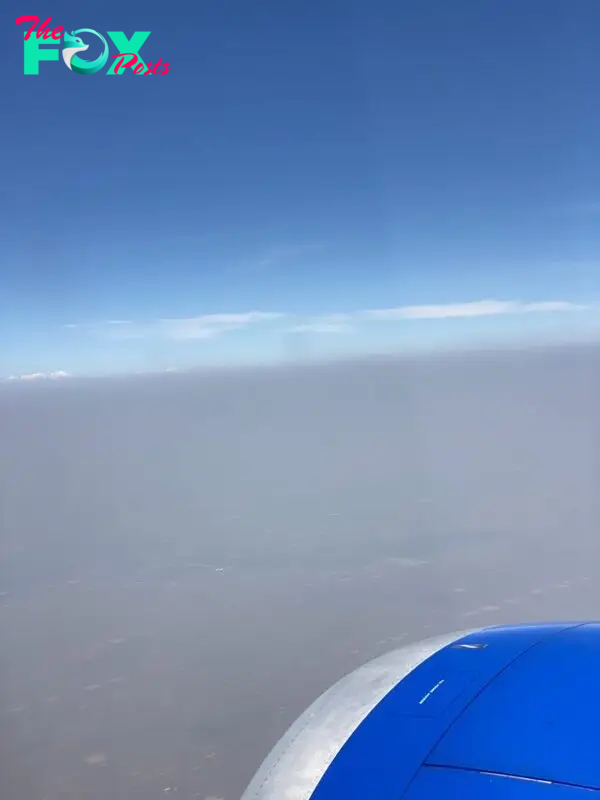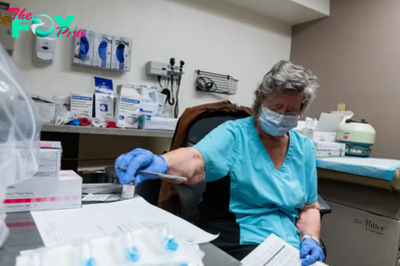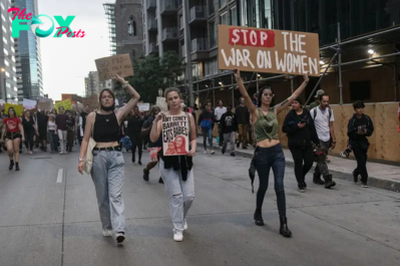Health
“Where am I going to live?”: Questions for Colorado doctors amid choking smoke and ozone
Distressed patients are more and more frequently making the same panicked demand of Dr. David Beuther, a pulmonologist at National Jewish Health, as Front Range air bakes into choking stew of ozone and wildfire smoke.
“Where am I going to live?”
They take their medicine, they follow the expert advice of National Jewish, they put HEPA filters into their air conditioners. They thought Denver’s dry climate was a hedge against some allergens and irritants. And yet, with Front Range cities hitting 100 degrees this week and the foothills of Larimer and Boulder counties on fire, their asthma hits on more days each summer. Their chronic cough gets worse. Smoke particles inflame their sinus disease.
“What I see in clinic is kind of an increasing despair, just ‘where am I going to live?’ On Monday, I had probably four or five patients describe, ‘Oh, this is happening again. I basically have to suffer through more symptoms, not able to go outside, not able to do the things I want,’” Beuther said. “For several months every summer.”
“And they seriously think, well, maybe I should move somewhere else. But as we go through it, where are you going to move? There are problems with many other choices. There really seems to be nowhere to go.”

Denver Health pulmonologist Dr. Anuj Mehta is telling patients the same thing: Expect increasing ozone and particulate alert days each year as the Front Range climate heats up, and wildfires from drying parts of the Pacific Northwest add to the volatile mix above metro Denver.
“This is not anything that’s going away. Every year we’re going to be dealing with some difficult air quality, both from a wildfire perspective and an ozone perspective. Potentially, it’s only going to get worse,” Mehta said. Ever more important then, Mehta added, is “having plans and establishing plans, if you’re somebody with asthma, if you’re somebody with COPD (chronic obstructive pulmonary disease).”
Here are some answers to frequent questions for top Front Range heart and lung doctors:
Should my children stay indoors instead of playing outside?
Children in metro Denver’s most vulnerable neighborhoods disproportionately impacted by historic pollution already suffer from higher rates of asthma and other illnesses. Parents who are getting ozone alerts in all neighborhoods on the Front Range wonder about the trade-offs.
It’s not just smoke particles and ozone that make afternoons dangerous, Mehta said — 100 degrees and a sunburn can hurt kids as well.
“I think it’s hard to keep young kids inside. We want them to be outside and playing, and not sitting in the house in front of screens. We know that’s healthy. So try and really think about the earlier morning hours when it’s cooler,” Mehta said.
The first step to making these decisions, Beuther said, is having good medical care, knowing your family’s health status, and for those established as having a chronic condition, following the plan.

“When our patients have an underlying condition that makes them more vulnerable, those are people that, when it gets into the orange and particularly the red zone, we start talking about staying indoors,” Beuther said. (On the AirNow.gov air quality gauge calibrated for any ZIP code, the orange warning zone is 100 to 150 air quality indexI, and above 150 is the red danger zone.)
For a vulnerable person seeing the AQI creep into the orange, Beuther advised, “windows and doors shut, HEPA filter on your furnace, running the air conditioning, keeping your rescue medications close and trying to limit your exposure to the outside as much as possible.”
If I’m healthy, should I still avoid exercising in the worst part of the day?
Don’t stop breathin’, don’t stop believin’, pulmonologists say — if you’re a super athlete or just an Olympics-season dreamer, keep on running. But do it early in the morning if you can, or late after dinner if it’s safe, when temperatures are cooler and air quality indices are lower.
“What I would tell an active healthy person in Colorado during these kind of orange, moderately bad air quality days, is that it’s probably safe for you to go and exercise at any time in the middle of the day if you want to, but I would probably try to avoid it. Is it going to hurt you? Probably not. If you feel bad, obviously that’s a signal,” Beuther said.
“What I tend to tell my athlete-type patients is, as this air quality gets from moderate to severe, or even in the moderate, that’s probably not the day you want to do your long, extended exertion, because this is about irritant exposure. It’s not just the intensity of it, it’s also the duration. If I have to go run 10 miles sometime this week, I’m going to look at when the air quality is the best or make sure that that one’s in the morning. If I have to run a quick 3 miles in the middle of the day, I’m not going to worry about it if I’m Healthy.”
What should vulnerable elderly residents or their caregivers do?
Take a moment to consider the living situation of elderly family and friends, Mehta said.
“For people that don’t have air conditioning, right now is a really difficult time,” he said. “The cycle of heat can affect people’s breathing, even more so the elderly, they’re more likely to get dehydrated. And all of those are kind of like a vicious cycle. If you’re dehydrated, your breathing can get worse, and then you’re probably not going to be reaching for water.”
-

 Health47m ago
Health47m agoThe Surprising Benefits of Talking Out Loud to Yourself
-

 Health2h ago
Health2h agoDoctor’s bills often come with sticker shock for patients − but health insurance could be reinvented to provide costs upfront
-

 Health17h ago
Health17h agoWhat an HPV Diagnosis Really Means
-

 Health23h ago
Health23h agoThere’s an E. Coli Outbreak in Organic Carrots
-

 Health1d ago
Health1d agoCOVID-19’s Surprising Effect on Cancer
-

 Health2d ago
Health2d agoWhat to Know About How Lupus Affects Weight
-

 Health5d ago
Health5d agoPeople Aren’t Sure About Having Kids. She Helps Them Decide
-

 Health5d ago
Health5d agoFYI: People Don’t Like When You Abbreviate Texts



























